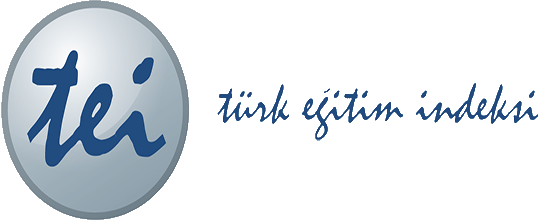MASS MEDIA AS A SOURCE OF INFORMATION SECURITY
DOI:
https://doi.org/10.32689/2617-9660-2020-2(8)-250-258Keywords:
mass media, information security, information policy, mass information security, state (national) media policy.Abstract
Mass media (mass media) have become an important social institution, which significantly affects the sustainable development of the state, political processes in society, the formation of public opinion, culture and worldview. The mass media turned into a “fourth” power, on which events are largely dependent. That is why the problem of creating state information security systems is so relevant at the present stage. In the modern world of innovative technologies, information security is already a social and technical phenomenon. It cannot be identified only with the use of special technical means and methods to protect information from unauthorized access, theft, destruction and etc. Ensuring information security is not only information protection, but also organizational, legal and other measures aimed at ensuring sustainable, stable development of society and the state, in which the goals of protecting national and economic security are achieved. The purpose of the article: to disclose the role of the media as a source of information security and determine the main provisions of the information policy, which should be aimed at ensuring sustainable, stable development of society and the state. Summary of research. The media are called upon to ensure mass information security (IIB) by delivering to the costumers the information resources necessary for decisionmaking, protection against manipulative misinformation, which is distributed by the same media. The media, along with state authorities, can and should participate in ensuring information security in such a way that the information circulation process is not interrupted, the information is not distorted, and the rights and interests of its subjects are not limited. The basic conditions for maintaining and strengthening the IIB are given so that they can be realized, they need to be discussed by all active actors in mass information activity, since in the conditions of striving for social consensus when finding their own ways to solve complex social problems, they can be clearly defined, and their general disposition to achieve information security. Conclusions from the study and prospects for further research in this direction. The mass media, as a source of information security, need to conduct their information policy based on the requirements of the IIB: 1. All citizens must be reliably provided with complete, reliable, up-to-date information, which provides each of the social subject with the opportunity to fully orientate themselves and in real life (facts, assessments, norms, ideals) in accordance with their needs, position in society, and accept evaluative and behavioral decisions, adequate situations in a particular area (world, region, country, city, district), to interpersonal relationships at work, in the family and the like. 2. There should be enough publicly available media channels and in such a variety that it would make it possible to make the appropriate choice of media that meets the needs of the social subject. 3. Diversity should relate to the positions that are presented so that everyone can get acquainted with all the options and independently, consciously, as accurately as possible determine their position based on their own interests and aspirations. 4. Each of the social subjects, in accordance with their position and goals, should be able to disseminate mass information on their own behalf and in their interests, including creating (establishing, distributing, substituting) media and having legal, economic and other opportunities to freely seek, receive, compose information into numbers (issues, programs). 5. There should be a worthy, well-grounded, “targeted” reaction to the speeches, questions, remarks of each subject of those to whom they are addressed, and / or from those who are interested in developing clear and convincing views in society regarding the issue under discussion. Indeed, if someone is “not heard” and “silent” instead of the answer, then the formation of the necessary information resources of the subject is under attack. 6. Each social subject has the right to count on receiving a regular opportunity to defend its position, refute the views of the opponent, openly seek jointly the generally accepted or acceptable for the majority point of view, the solution of the problem under discussion in the national interests;The “freedom of criticism” of all must be freed from populism, demagogy, and other methods of disorientation. 7. It requires maximum openness of information sources and their accessibility for all citizens, as well as the development of press services of various institutions, departments and etc. All mass media costumers (both social institutions and individuals) must accumulate and implement skills in working with mass media flows of various kinds.n such an “upbringing” of the audience, the decisive role belongs to the media themselves, which, demonstrating their approaches and substantiating them, criticizing opponents, searching through dialogue for a solution to the problems discussed, thereby “teaching” the audience to understand the intricacies of the information confrontation. It is the media that bear the main responsibility for the formation of personal and civic qualities that can withstand information risks.
References
Панарин И.Н. Информационная война и власть. М. Издательский дом «Мир безопасности». 2001. С. 100.
Панченко О.А. Информационная безопасность личности / О.А. Панченко, Н.В. Банчук. 2-е изд. испр. К.: КИТ, 2011. 672 с.
Katz, E., Lazarsfeld, P. (1955) Personal Influence: The Part Played by People in the Flow of Mass Communication. Glencoe, IL: The Free Press.
Головка А. А. Діяльність сучасних ЗМІ в контексті інформаційної безпеки України. Актуальні проблеми гуманітарних та природничих наук (м. Ужгород, 08-09 квітня 2016 р.). Херсон: Видавничий дім «Гельветика», 2016. С. 85-87
Осипова, Н. Г., Юрченко, Е. И. Средства массовой информации в современном обществе: теоретико-методологический анализ новейших подходов. Вестник Московского университета. Сер. 18. Социология и политология. М. 2010. №1. С. 64–85.
Закон України «Про інформацію» від 02.10.1992 року № 2658-XII [Редакція від 03.12.2019 р.]; [Електронний ресурс] // Сайт Верховної Ради України. – Режим доступу: https://zakon.rada.gov.ua/laws/ show/2657-12
Майофис, М., Кукулин, И. Свобода как неосознанный прецедент: заметки о трансформации медийного поля в 1990 году. Новое литературное обозрение. М. 2007. № 83. С. 599–656.










